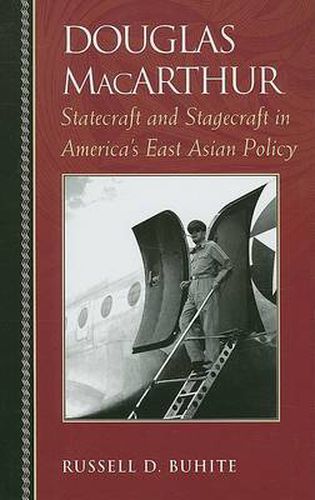Readings Newsletter
Become a Readings Member to make your shopping experience even easier.
Sign in or sign up for free!
You’re not far away from qualifying for FREE standard shipping within Australia
You’ve qualified for FREE standard shipping within Australia
The cart is loading…






Buhite offers a trenchant evaluation of Douglas MacArthur’s career in east Asia and his role in some of the most important military and diplomatic issues of the twentieth century. Concise and highly readable, this biography considers diplomatic fact in light of psychological insight, and asks us to look anew at both MacArthur and American involvement in the region. From Manila to Washington, with Tokyo and Seoul in between, readers follow the course of American foreign diplomacy in East Asia via MacArthur’s own career. This fascinating intersection of personality and policy would make for newsreel footage and newspaper headlines, such as when he waded ashore Luzon Island in the Philippines and sent Washington provocative communiques about the People’s Republic of China. Yet, as Buhite shows, grand gestures are not the substance of great foreign policy, and MacArthur’s reputation merits critical reassessment. This is a must read for those interested in diplomatic and military history.
$9.00 standard shipping within Australia
FREE standard shipping within Australia for orders over $100.00
Express & International shipping calculated at checkout
Buhite offers a trenchant evaluation of Douglas MacArthur’s career in east Asia and his role in some of the most important military and diplomatic issues of the twentieth century. Concise and highly readable, this biography considers diplomatic fact in light of psychological insight, and asks us to look anew at both MacArthur and American involvement in the region. From Manila to Washington, with Tokyo and Seoul in between, readers follow the course of American foreign diplomacy in East Asia via MacArthur’s own career. This fascinating intersection of personality and policy would make for newsreel footage and newspaper headlines, such as when he waded ashore Luzon Island in the Philippines and sent Washington provocative communiques about the People’s Republic of China. Yet, as Buhite shows, grand gestures are not the substance of great foreign policy, and MacArthur’s reputation merits critical reassessment. This is a must read for those interested in diplomatic and military history.